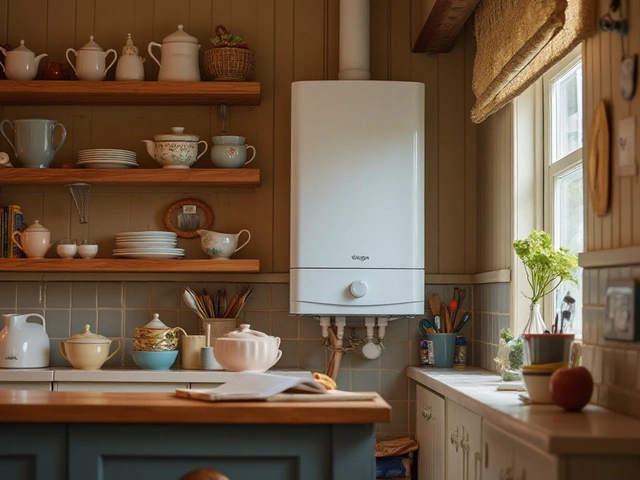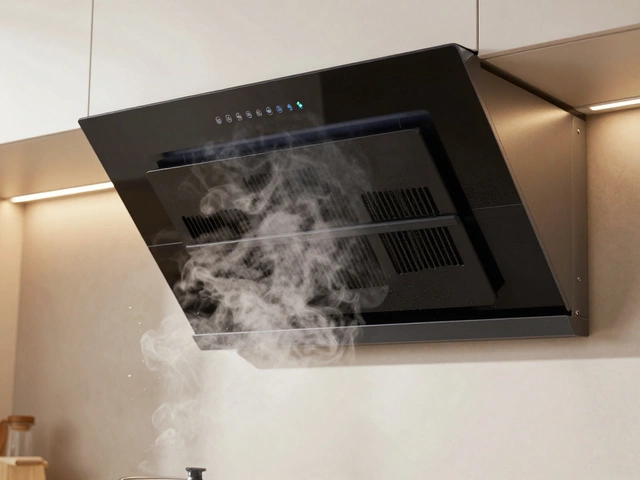Longevity of Boilers: How Many Years Can You Expect?
November 29 2024Hot Water Heater Guide: Keep Your Showers Warm and Your Wallet Happy
If your shower suddenly turns cold or you hear rumbling noises, the hot water heater is probably the culprit. Most homeowners don’t think about it until something breaks, but a little know‑how can stop costly repairs and keep the water hot all year round.
How Long Should a Hot Water Heater Last?
On average a gas‑fired water heater gives you 8‑12 years of service, while electric models tend to last a bit longer – around 10‑15 years. Age alone isn’t the whole story. Corrosion, hard water, and frequent use can shave years off the lifespan. Watch for these warning signs:
- Water takes longer to heat up than before.
- Fluctuating temperatures – hot one minute, lukewarm the next.
- Visible rust or water leaking at the base.
- Strange noises – popping, cracking, or banging sounds.
If you notice two or more of these, it’s time to inspect the unit or call a qualified engineer.
Simple Maintenance to Extend Life
Most hot water heater problems are preventable with a few easy tasks. You don’t need a toolbox full of gadgets – just a garden hose and a bucket.
Flush the tank. Sediment builds up over time and makes the heater work harder. Turn off the power or gas, attach a hose to the drain valve, and let the water run until it’s clear. This quick flush can be done once a year.
Check the anode rod. The rod attracts corrosion, protecting the tank. If it’s heavily worn, replace it. A new rod can add several years to the heater’s life.
Test the thermostat. Set it to 120°F (49°C) for a comfortable balance of hot water and energy use. If the water is too hot or not hot enough, the thermostat may need adjustment or replacement.
Insulate the pipes. Adding a simple pipe wrap reduces heat loss and can lower energy bills.
Besides these DIY steps, schedule a professional service at least once every two years. A certified gas engineer can spot hidden leaks, check venting, and confirm the pressure relief valve works correctly.
When you’re faced with a leaking tank, a noisy heater, or water that won’t get hot despite all the tricks, don’t gamble with a DIY fix that could void warranties or create safety risks. Call a licensed specialist – they’ll diagnose the issue fast and tell you whether a repair makes sense or a new unit is the smarter choice.
Bottom line: a well‑maintained hot water heater gives you reliable warmth, lower bills, and peace of mind. A little attention now saves you a call to emergency services later. Keep these tips handy, and enjoy hot showers without surprise breakdowns.
 17 May
17 May
Bad Hot Water Heater Element: How to Spot It Fast
Is your shower turning cold halfway through or does your water heater sound like it’s throwing a fit? Chances are, your hot water heater element might be bad. This article covers the typical signs that hint at an element gone rogue, what you can check yourself, and how to avoid unnecessary headaches. Get tips on quick home tests and when to call in a pro. Nobody likes surprise cold showers, so here’s how to keep yours steaming.
Read More... 28 Nov
28 Nov
Step-by-Step Guide to Resetting Your Hot Water Heater Safely
Resetting a hot water heater can be a simple task if you understand the basic steps and precautions involved. This article provides detailed guidance on how to safely reset your water heater, including identifying common problems that may require a reset. You'll also find useful tips to maintain your heater's performance and improve its efficiency. With easy-to-follow instructions, anyone can tackle this common household issue without the need for professional assistance.
Read More...



